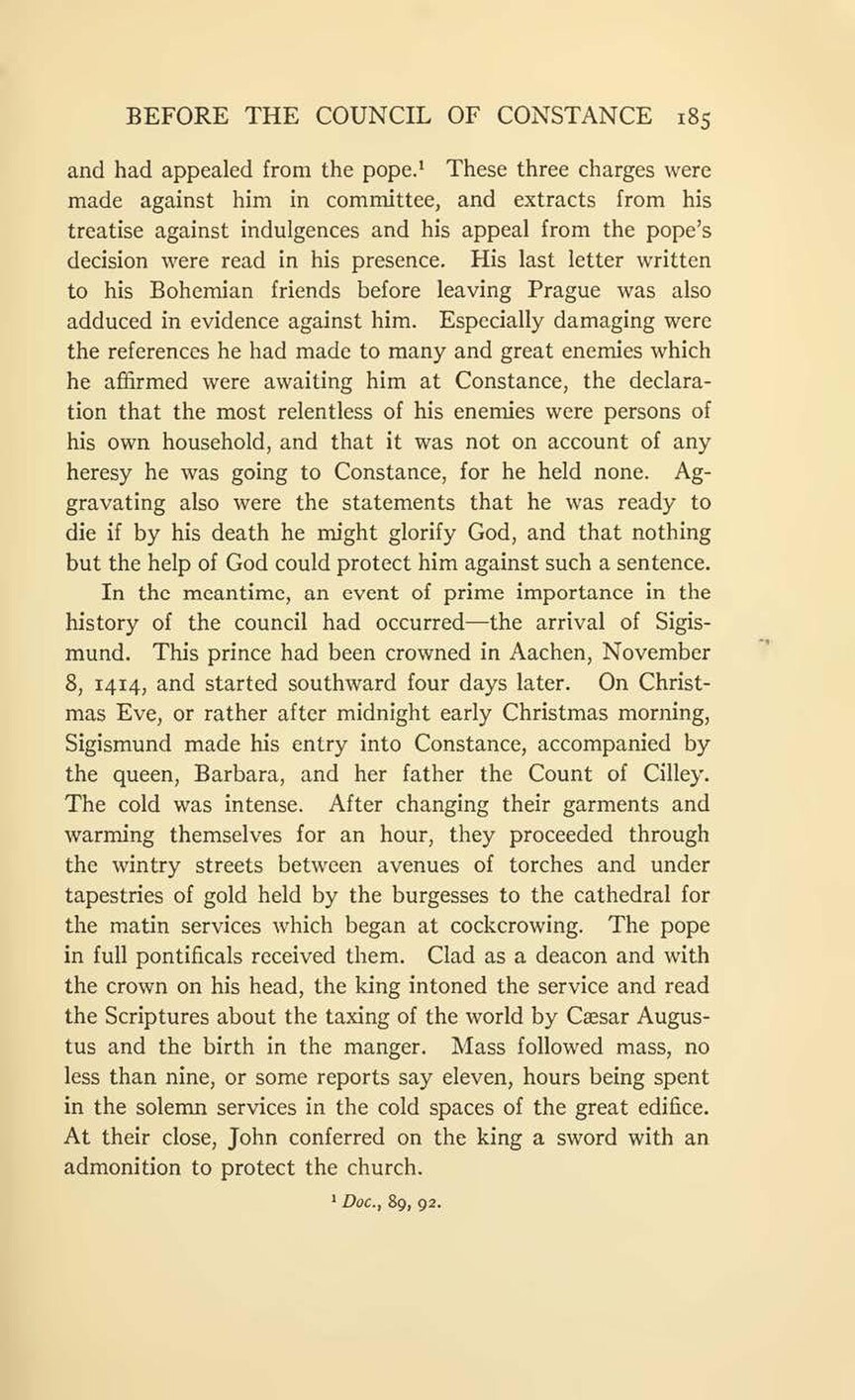and had appealed from the pope.[1] These three charges were made against him in committee, and extracts from his treatise against indulgences and his appeal from the pope’s decision were read in his presence. His last letter written to his Bohemian friends before leaving Prague was also adduced in evidence against him. Especially damaging were the references he had made to many and great enemies which he affirmed were awaiting him at Constance, the declaration that the most relentless of his enemies were persons of his own household, and that it was not on account of any heresy he was going to Constance, for he held none. Aggravating also were the statements that he was ready to die if by his death he might glorify God, and that nothing but the help of God could protect him against such a sentence.
In the meantime, an event of prime importance in the history of the council had occurred—the arrival of Sigismund. This prince had been crowned in Aachen, November 8, 1414, and started southward four days later. On Christmas Eve, or rather after midnight early Christmas morning, Sigismund made his entry into Constance, accompanied by the queen, Barbara, and her father the Count of Cilley. The cold was intense. After changing their garments and warming themselves for an hour, they proceeded through the wintry streets between avenues of torches and under tapestries of gold held by the burgesses to the cathedral for the matin services which began at cockcrowing. The pope in full pontificals received them. Clad as a deacon and with the crown on his head, the king intoned the service and read the Scriptures about the taxing of the world by Cæsar Augustus and the birth in the manger. Mass followed mass, no less than nine, or some reports say eleven, hours being spent in the solemn services in the cold spaces of the great edifice. At their close, John conferred on the king a sword with an admonition to protect the church.
- ↑ Doc., 89, 92.
